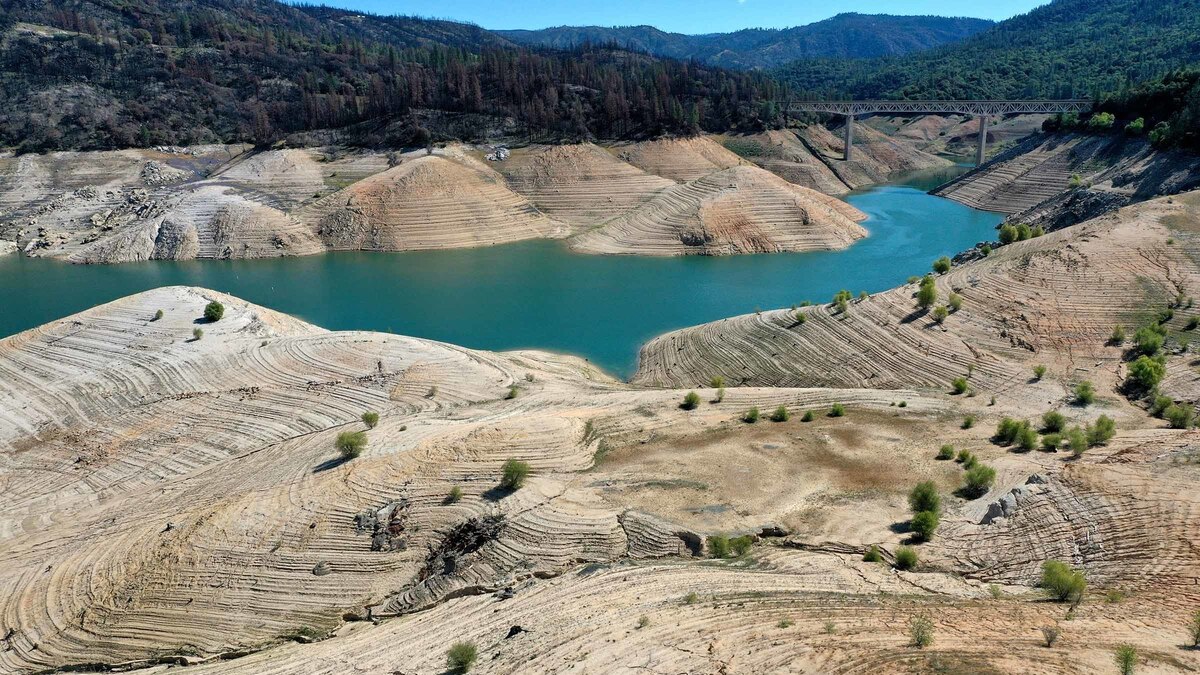Warmer temperatures are leading to emptier reservoirs across the West, such as Lake Oroville in Northern California.
Justin Sullivan/Getty Images
hide caption
toggle caption
Justin Sullivan/Getty Images

Warmer temperatures are leading to emptier reservoirs across the West, such as Lake Oroville in Northern California.
Justin Sullivan/Getty Images
For the second weekend in a row, parts of the American West will be gripped by historic heat, coming in the second decade of megadrought that has gripped the region for 22 years.
Wildfire is an obvious threat — but there are other consequences of extreme heat and drought, as smaller snowmelts and lower reservoirs lead to water cutbacks and more expensive electricity. And climate change is making it all worse.
Colorado Public Radio’s Michael Elizabeth Sakas reports on another consequence: what happens when there isn’t enough water to build new homes.
Kristina Dahl, senior climate scientist with the Union of Concerned Scientists, explains how extreme heat can affect the human body,
Additional reporting in this episode:
• Jordan Kern spoke to NPR’s Scott Detrow about hydropower in the West.
• Michael Elizabeth Sakas reported on western snowmelt.
• NPR’s Kirk Siegler reported on record high temperatures.
• NPR’s Lauren Sommer reported on dwindling water supplies.
• NPR’s Nathan Rott, Luke Runyon of KUNC in Colorado and Annie Ropeik of New Hampshire Public Radio discussed the growing consequences of heat and drought.
Email us at considerthis@npr.org.
This episode was produced by Lee Hale and Brent Baughman. It was edited by Sami Yenigun with help from Jennifer Ludden and Neela Banerjee. Our executive producer is Cara Tallo.
